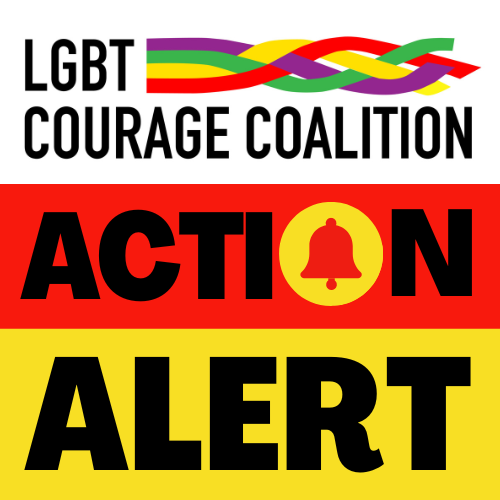Background: The Yogyakarta Principles
In 2006, the United Nations assembled a group of human rights scholars in Yogyakarta, Indonesia to outline principles which would guide the implementation of binding human rights law regarding “sexual orientation and gender identity”. The resulting document is called The Yogyakarta Principles, which was updated in 2017 to include 10 additional principles.
Most of the Principles are universally accepted human rights. For example, the right to life, sanitation, freedom from torture, and the right to opinion, expression and peaceful assembly.
Principle 32 addresses the right to bodily autonomy. This phrase is often used to justify the provision of puberty blockers, cross sex hormones and surgery to anyone who requests them, though that’s not actually what Principle 32 says. Quite the opposite. It refers to medical alterations to sex characteristics by coercion, without consent, such as female genital mutilation or cosmetic surgeries on children born with atypical sexual anatomy.
Principle 31: The Right to Legal Recognition
The overall guidelines are, for the most part, sound and well considered standards, except one section: Principle 31. THE RIGHT TO LEGAL RECOGNITION
Parts of this Principle are valid. For example, guaranteeing every individual has access to documents such as birth certificates, and not being required to disclose their sexual orientation or sex characteristics where not relevant.
But, it goes on to make three points:
That everyone “has the right to change gendered information in such documents while gendered information is included in them. “
And
“Ensure a quick, transparent, and accessible mechanism that legally recognises and affirms each person’s self-defined gender identity”
And
“Ensure that no eligibility criteria, such as medical or psychological interventions, a psycho-medical diagnosis, minimum or maximum age, economic status, health, marital or parental status, or any other third party opinion, shall be a prerequisite to change one’s name, legal sex or gender”
“Self-ID” for Children: A Path to Medicalization
Phrases like “self determination” and “bodily autonomy” have become central to trans activism, which has tied itself to women’s reproductive rights. Under this banner, many countries, including Canada and the United States, have begun implementing “self ID” policies by which anyone can change the sex marker on their formal identification by simply requesting it, thereby legally changing sex according to the State, with no required assessment, endorsement, diagnosis or age limit.
There are many reasons for concern with self-ID policies, including but not limited to women’s rights to single sex spaces.
Perhaps most importantly, self-ID puts children at risk of medical harm, because this Principle doesn’t take into account the decades of research about Early Onset Gender Dysphoria and its typical trajectory in children.
To date there are twelve “persistence/desistance” studies which followed cohorts of children with Gender Identity Disorder or Gender Dysphoria. Even when controlled for subclinical cases, the conclusions are the same. The majority of childhood perceptions of sex incongruence resolve through puberty, and most of those kids (especially the boys) grow up to be gay. Early “social transition” prior to puberty (e.g. changing name, pronouns and sex marker) has been frowned upon by almost every clinical model, including Watchful Waiting and the Dutch Protocol, because it’s widely known and accepted among clinical researchers and practitioners that childhood gender non-conformity and even strong perceptions of themselves as the opposite sex, are most often a part of the developmental pathway to adult homosexuality and/or trauma or family dysfunction.
Social transition is a psychological, clinical intervention along the medical pathway that requires clinical oversight and careful screening. No respectable model of care has endorsed the initiation of clinical interventions without adequate assessment, therapy and differential diagnosis. Sadly, the reality is that social transition for children as young as 2, 3 and 4 year olds is pushed by activists, and the belief that “children know who they are” has now captured both institutions and individuals across society. This has resulted in the widespread practice of social transition for young children, whether initiated by parents themselves, activist and ideologically captured clinicians, or even schools.
A Path Paved by Good Intentions
Principle 31, however well intended, is in direct conflict with clinical knowledge and established best practices. This degree of activist overreach has grave health implications for young gay and lesbian children.
Principle 31 is in conflict with Principle 32 which aims to protect gay and gender diverse people from medical harm. Pre-gay and pre-lesbian children, and their families, are being given false information about the nature of Early Onset Gender Dysphoria, and how it relates to sexual orientation. With that false information, they may choose social and legal interventions which lead to medically altering a child’s sex characteristics. This is a violation of a child’s basic human rights as neither the child or their parents can truly provide consent to interventions if they have been provided misinformation about their experiences.
ACTION ALERT: Tell the UN that Self-ID is harmful to pre-gay children.
Send an email to Victor Madrigal-Borloz, Independent Expert on Sexual Orientation and Gender Identity at the UN, and the Office of the UN High Commissioner.
Here is a sample letter:
Dear Victor Madrigal-Borloz and the Office of the UN High Commissioner,
I am writing to ask that you reconsider Principle 31 of the Yogyakarta Principles. It is poorly written and fails to take into account scientific knowledge about the homosexual developmental process, and clinical best practices regarding Early Onset Gender Dysphoria. Self ID is harmful to pre-gay children. Instead of being given the chance to resolve feelings of sex-incongruence by going through puberty, self-ID promotes the right to social transition. Once a child changes their name, pronouns and gender marker, this locks them into a cross-sex identity, and then leads to unneeded medical interventions. Please reconsider Principle 31.
Sincerely,
Address the email to:
Victor Madrigal-Borloz, Independent Expert on sexual orientation and gender identity hrc-ie-sogi@un.org
Office of the UN High Commissioner ohchr-ie-sogi@un.org






Done, thank you!
Did the UN convene the original meeting? I don’t see evidence of that. Can you provide?